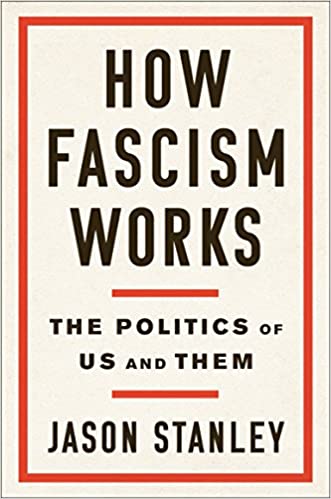How Fascism Works Audiobook by Jason Stanley
Dive into “How Fascism Works Audiobook” by Jason Stanley, narrated by MacLeod Andrews. This essential listen unravels the ten pillars of fascist politics, connecting historical patterns to today’s global landscape. With sharp insights and compelling storytelling, Stanley exposes how rhetoric becomes reality – and how we can resist authoritarianism. Perfect for anyone seeking clarity in turbulent times. Listen or download for free on Ezaudiobookforsoul.com and join the conversation about democracy’s future!
On a quiet Sunday morning, as the sun gently filtered through the blinds of my cozy reading nook, I immersed myself in “How Fascism Works” by Jason Stanley. The stillness of the morning, paired with a steaming cup of tea, created the perfect atmosphere to absorb such a thought-provoking and timely audiobook. MacLeod Andrews’ narration was crisp and compelling, drawing me into Stanley’s meticulously researched exploration of fascist politics.
What struck me most was how deeply personal this book felt, despite its academic tone. As someone who values democracy and equality, I found myself both enlightened and unsettled by Stanley’s analysis. He doesn’t just describe fascism as a historical phenomenon; he connects it to the present moment with alarming clarity. The ten pillars of fascist politics – ranging from exploiting mythic pasts to attacking labor groups – felt eerily familiar, as if Stanley had held up a mirror to our current societal struggles.
One chapter that particularly resonated with me was his discussion on anti-intellectualism. As someone who believes in the power of education and critical thinking, it was disheartening yet necessary to confront how easily these values can be undermined. Stanley’s examples from countries like Hungary and India made the global relevance of his work undeniable. It reminded me that fascism isn’t confined to one nation or era; it’s a recurring threat that demands vigilance.
By the end of the audiobook, I felt both informed and motivated. Stanley doesn’t just diagnose the problem – he offers a way forward by urging us to recognize and resist these tactics. His words lingered in my mind long after I finished listening, prompting me to reflect on my own role in safeguarding democratic ideals.
| Author | |
|---|---|
| Narrator | |
| Language |
- Soulful_ExplorationHow Fascism Works Audiobook
- 01How Fascism Works Audiobook
- 02How Fascism Works Audiobook
- 03How Fascism Works Audiobook
- 04How Fascism Works Audiobook
- 05How Fascism Works Audiobook
- 06How Fascism Works Audiobook












